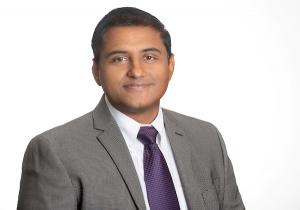Nitin Agarwal

Director, Collaboratorium for Social Media and Online Behavioral Studies (COSMOS)
Web: http://cosmos.ualr.edu/
Jerry L. Maulden-Entergy Endowed Chair & Distinguished Professor
University of Arkansas – Little Rock
Web: https://agarwalnitin.com/
Nitin Agarwal’s research aims to push the boundaries of our understanding of digital and cyber social behaviors that emerge and evolve constantly in the modern information and communication platforms. At COSMOS, he is leading projects with a combined funding of over $25 million from an array of U.S. federal agencies including Department of Defense, DARPA, Department of State, National Science Foundation and plays a significant role in the long-term partnership between UA Little Rock and the Department of Homeland Security. He developed publicly available social media analysis tools (Blogtracker and VTracker), assisting NATO Strategic Communications and Public Affairs, European Defense agencies, Australian Defense Science and Technology agency’s strategic policy group, Singapore government, Arkansas Attorney General’s office, among others. Dr. Agarwal participates in the National Tech Innovation Hub launched by the U.S. Department of State to defeat foreign based propaganda. He is the chief technical advisor for Bond.AI, a Little Rock-based FinTech company, helping in developing financial behavioral models using Artificial Intelligence.
Dr. Agarwal’s research contributions lie at the intersection of social computing, behavior-cultural modeling, collective action, social cyber forensics, Artificial Intelligence, data mining, machine learning, smart health, and privacy. From Saudi Arabian women's right to drive cyber campaigns to Autism awareness campaigns to ISIS' and anti-West/anti-NATO disinformation campaigns, at COSMOS, he is directing several projects that have made foundational and applicational contributions to social and computational sciences, particularly in understanding coordinated cyber campaigns. He has published 11 books and over 300 articles in top-tier peer-reviewed forums including the NATO’s Defense StratCom Journal, Army University Press, CANSOFCOM’s Future Conflict journal, Baltic Security among others, with several best paper awards and nominations. His most recent book explores the deviant behaviors on the Internet and is published by Springer in their series on cybersecurity. His work has been covered by local, national, and international media including Bloomberg, US News, KUAR, Arkansas Business, Arkansas Times, Arkansas Democrat Gazette, and many others. Over the last several years, Dr. Agarwal has spoken at various public and professional, national and international forums such as the NATO’s StratCom COE (Riga, Latvia), DARPA, US Department of State, US Naval Space and Warfare (SPAWAR), US Pentagon’s Strategic Multilevel Assessment groups, US National Academies of Sciences Engineering and Medicine, US Office of the Director of National Intelligence, Facebook Asia Pacific HQ, Twitter Asia Pacific HQ, US Embassy in Singapore, Singapore Ministry of Communication and Information, NATO Senior Leadership meetings, USIP, among others.
Dr. Agarwal obtained Ph.D. from Arizona State University with outstanding dissertation recognition in 2009. He was recognized as one of 'The New Influentials: 20 In Their 20s' by Arkansas Business in 2012. He was recognized with the University-wide Faculty Excellence Award in Research and Creative Endeavors by UALR in 2015 and 2021. Dr. Agarwal received the Social Media Educator of the Year Award at the 21st International Education and Technology Conference in 2015. In 2017 the Arkansas Times featured Dr. Agarwal in their special issue on "Visionary Arkansans”. Dr. Agarwal was nominated as International Academy, Research and Industry Association (IARIA) Fellow in 2017, an Arkansas Academy of Computing (AAoC) Fellow in 2018, and an Arkansas Research Alliance (ARA) Fellow in 2018. In 2021, his research was recognized as one of the top 10 solutions for “Countering Cognitive Warfare: The invisible Threat” by NATO’s Innovation Hub out of 132 teams from the 30 NATO member nations. In 2022, his COVID-19 Misinformation tracker was recognized by the World Health Organization (WHO) as one of the key technological innovations globally to address the COVID-19 pandemic.
